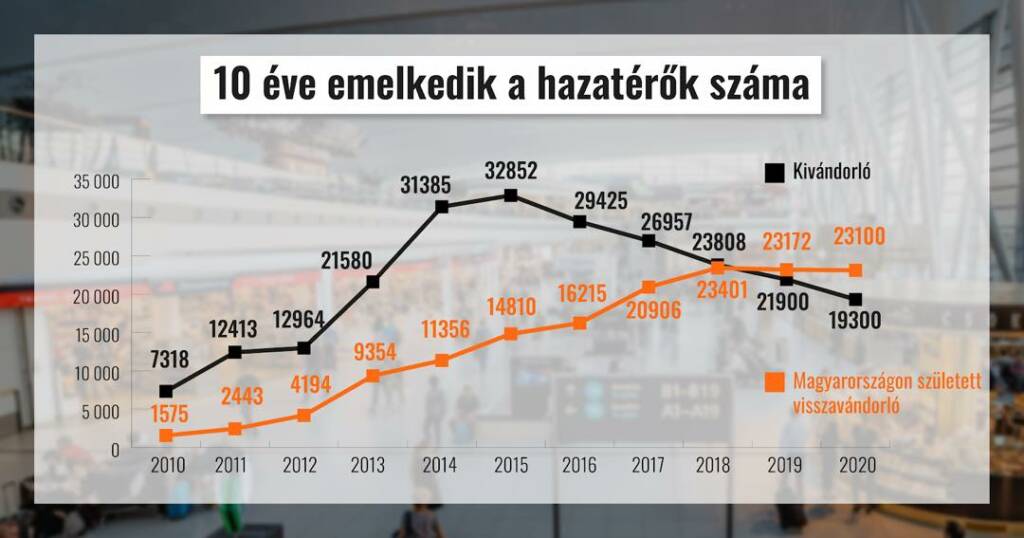Hungary – On 11 July, Fidesz deputy chairman and MP Gábor Kubatov expressed his delight that, for two years in a row, the number of Hungarians returning to their country had surpassed the number of departures. This is a very positive trend for this country of 9.7 million inhabitants, which has been marked by very high rates of structural emigration since its entry into the EU.
Good news for Hungary
“According to KSH data, 23,100 Hungarian-born citizens who had emigrated returned in 2020, which is almost the same as the 23,127 people who emigrated in 2019! The good news is that it means the migration balance of those born in Hungary shows a two-year migration surplus, namely that in 2019 and 2020, 5,000 more people came back home than emigrated”, he wrote.
(…) “We have created a stable vision in order to achieve this, a safe country that sees the future in the well-being of young people and the family.
(…) We continue to believe that we must do everything possible to ensure that thousands of Hungarian families who have emigrated return and are reunited. (…)
We will continue to support the return of our compatriots who have emigrated and help them prosper at home!”,
he concluded.

More and more reasons to come back home?
Indeed, as can be seen in the graph published by Gábor Kubatov, the number of emigrants, which had climbed from 7,318 in 2010 to a peak of 32,852 in 2015, has continuously declined since then to only 19,300 in 2020, while the number of returnees has been steadily increasing for the last ten years, from 1,575 in 2010 to 23,100 in 2020. This positive development is attributed by the Hungarian government, which has been in office since 2010, to its work in favour of families and entrepreneurs over the past decade.
Among the main reasons for the departures are the structural and economic differences between Hungary and Western European countries, with wages that can be two to four times higher in the latter. Although these differences persist, they have tended to diminish in recent years, particularly for cross-border workers near Austria or in Budapest. The easy access to home ownership favoured by policies enforced since the fall of communism and by relatively low real estate prices until the mid-2010s has also played a role: 92% of Hungarians are homeowners, and there is no inheritance tax.




